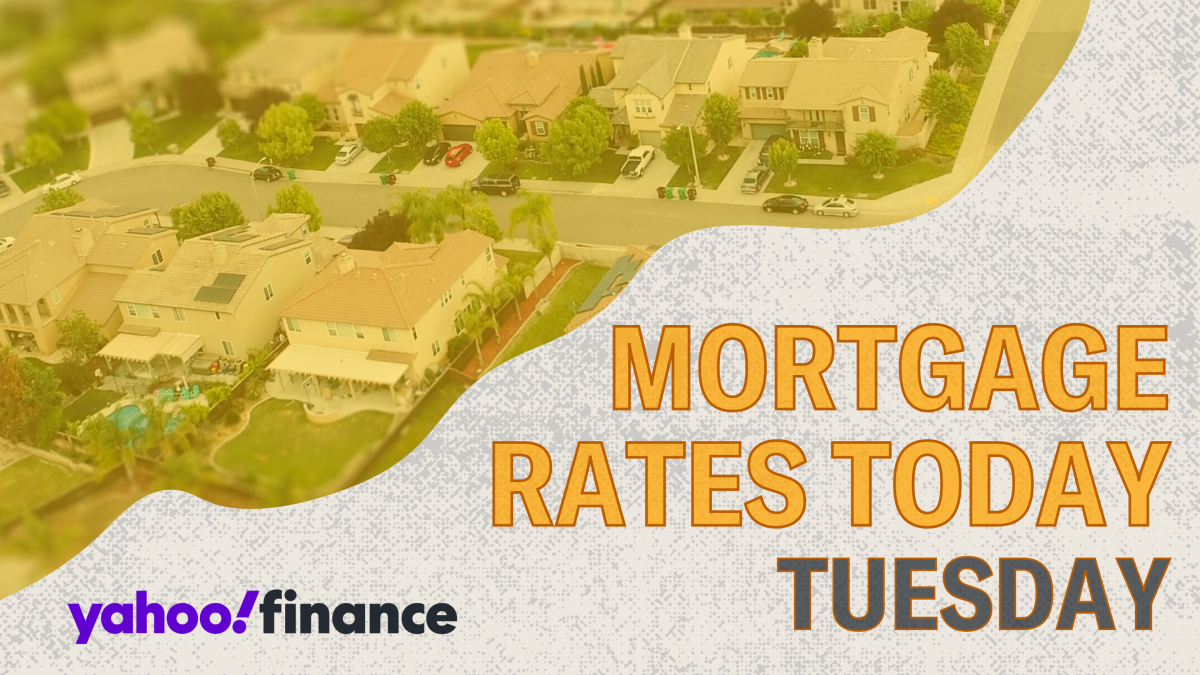Most mortgage rates have dipped slightly today. According to Zillow, the 30-year fixed mortgage rate is down three basis points to 6.64%, and the 15-year fixed interest rate has remained flat at 6.03%.
In December, the Federal Reserve cut the federal funds rate by 25 basis points — its third rate cut of the year. This decrease has already been baked into current mortgage interest rates, so the cut alone shouldn’t cause mortgage rates to drop. However, the Fed is expected to make two additional rate cuts in 2025, and we should see mortgage rates decline gradually next year.
Dig deeper: How the Federal Reserve impacts mortgage rates
Here are the current mortgage rates, according to our latest Zillow data:
-
30-year fixed: 6.64%
-
20-year fixed: 6.39%
-
15-year fixed: 6.03%
-
5/1 ARM: 6.69%
-
7/1 ARM: 6.55%
-
30-year VA: 6.07%
-
15-year VA: 5.64%
-
5/1 VA: 6.36%
Remember that these are the national averages and rounded to the nearest hundredth.
Read more: How to get the lowest mortgage rates possible
These are the current mortgage refinance rates, according to the latest Zillow data:
-
30-year fixed: 6.73%
-
20-year fixed: 6.29%
-
15-year fixed: 5.97%
-
5/1 ARM: 6.01%
-
7/1 ARM: 6.60%
-
30-year VA: 6.29%
-
15-year VA: 5.95%
-
5/1 VA: 5.79%
Again, the numbers provided are national averages rounded to the nearest hundredth. Refinance rates are usually higher than purchase rates.
A mortgage calculator can help you see how various mortgage term lengths and interest rates will affect your monthly payments. Use the free Yahoo Finance mortgage calculator to play around with different outcomes.
Our calculator also considers factors like property taxes and homeowners insurance when calculating your estimated monthly mortgage payment. This gives you a better idea of your total monthly payment than if you just looked at mortgage principal and interest.
As a rule of thumb, 15-year mortgage rates are lower than 30-year mortgage rates. When comparing 15- versus 30-year mortgage rates, know that the shorter term will save you money on interest in the long run. However, your monthly payments will be higher because you’re paying off the same loan amount in half the time.
For example, with a $400,000 mortgage with a 30-year term and a 6.64% rate, you’ll make a monthly payment of about $2,565 toward your mortgage principal and interest. As interest accumulates over decades, you’ll end up paying $523,476 in interest.
If you get a $400,000 15-year mortgage with a 6.03% rate, you’ll pay about $3,382 monthly toward your principal and interest. However, you’ll only pay $208,744 in interest over the years.
If that 15-year mortgage monthly payment is too high, remember you can always make extra mortgage payments on your 30-year loan to pay off your mortgage faster and ultimately pay less interest.
With a fixed-rate mortgage, your rate is locked in from day one. However, you will get a new rate if you refinance your mortgage.
An adjustable-rate mortgage keeps your rate the same for a set period of time. Then the rate will go up or down depending on several factors, such as the economy and the maximum amount your rate can change according to your contract. For example, with a 7/1 ARM, your rate would be locked in for the first seven years, then change every year for the remainder of your term.
Adjustable rates sometimes start lower than fixed rates, but once the initial rate-lock period ends, you risk your interest rate going up. ARM rates have also been starting higher than fixed rates recently, so they’re not as good of a deal as usual.
Dig deeper: Adjustable-rate vs. fixed-rate mortgage — Which should you choose?
Mortgage rates trended downward from early August to the Sept. 18 Federal Reserve meeting, when the central bank announced a 50-basis-point slash to the federal funds rate. Since that announcement, mortgage rates have increased or held steady for the most part. (With occasional exceptions when rates have dropped.)
The Fed decreased its rate again at its November and December meetings (by 25bps each time). The trajectory of future mortgage rates will largely depend on the Federal Reserve’s decision on whether or not to cut the federal funds rate at its 2025 meetings. Currently, it’s expected the Fed will cut its target rate twice next year.
The federal funds rate doesn’t directly impact mortgage rates, but it is a good indicator of how the economy is doing overall. So when the Fed rate drops, mortgage rates typically go down too.
Learn more: When will mortgage rates go down? A look at 2025.
According to Zillow data, today’s 30-year fixed rate is 6.64%, and the 30-year refinance rate is 6.73%. These are the national averages, so keep in mind the average in your state or city could be different. Your rate will also vary depending on your personal finances.
Mortgage rates have been inching up following the Federal Reserve meeting last Wednesday. Rates may gradually drop in 2025, but there is no guarantee.
Mortgage rates probably won’t go down significantly in 2024. They may fall throughout 2025, though.
EMEA Tribune is not involved in this news article, it is taken from our partners and or from the News Agencies. Copyright and Credit go to the News Agencies, email news@emeatribune.com Follow our WhatsApp verified Channel




